Two years ago, I watched and wrote about every single film in the Marvel Cinematic Universe. They've made so many more of them since then! So, I'm picking up where I left off. The last film in my recap series was. Next up: Captain America: Civil War.
When my younger brother told me he wanted to see Avengers: Infinity War, I was a bit surprised. While he's an admitted fan of fantasy sagas such as Harry Potter and Lord of the Rings, he'd never been swayed by comic book adaptations. Infinity War was a big enough cultural moment that even he wanted to be a part of it. He followed up that declaration with an inquiry: what was the bare minimum of films he could watch so that he could see Infinity War and not be completely lost? What was the most recent film in the MCU that would serve as a decent enough launching point? I gave him a list, a mixture of films that introduced characters I assumed would play a role and what I perceived as the MCU's strongest entries. However, when it came to an acceptable starting off point, I didn't hesitate: Start with Captain America: Civil War.
It's not just that the film remains one of Marvel's strongest, striking a perfect balance between superhero pathos and giddy action scenes. It introduces and reintroduces so many major characters that it knocks out a lot of exposition groundwork.
Looking back at it now, a few years removed from its premiere, I'm still struck by just how well Civil War actually works. It has so many spinning plates, yet never drops one of them. The fact that every character gets a moment to shine, while never making the film feel overstuffed is something of a minor miracle.
The narrative serves as a commentary on the films that precede it, focusing on whether or not all the battles the Avengers have carried out are actually worth all the ensuing carnage. It's a film about consequences and whether certain costs are ever really justified. However, even coming into Civil War without knowledge of the other films, it gives enough background information that you get the gist of what's happened before. I mean, they're superhero films. Do you really have to watch them to know major property destruction happened during a climax?
Civil War 's narrative initially appears to center around a mistake that kills several innocent bystanders that lead to a multi-nation attempt to harness and regulate The Avengers. However, that agreement becomes the Maguffin that serves to drive a wedge between the Avengers. Tony Stark (Robert Downey Jr.), the longtime distrustful cynic, would just as soon play ball, retain the autonomy they can rather than risk losing it later. Steve Rogers (Chris Evans), who has evolved from government representative to someone who tends to suspect ulterior motives, feels they should refuse and remain their own, independent entity. Once Steve's old friend/ former murderer and brainwashed sleeper agent Bucky (Sebastian Stan) enters the narrative, the film pushes their relationship, always tense at best, into downright animosity.
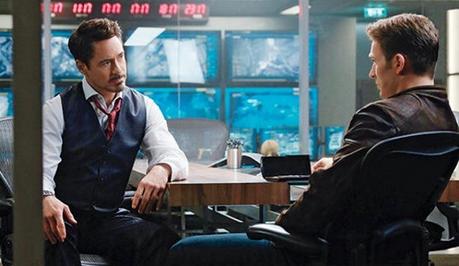
Much of what makes Civil War so successful revolves around its willingness to put characters first, spectacle second. It's a popcorn film, but there's substance beneath its flashy surface. It's to the film's credit that, even when beating each other to bloody pulps, Tony and Steve remain sympathetic.
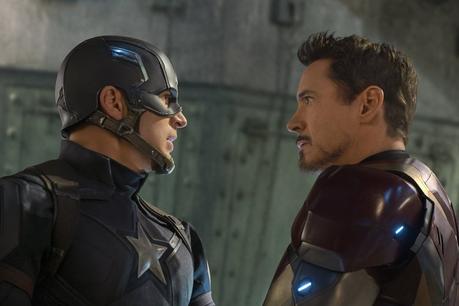
We understand both of their positions and see them as both equally right and fundamentally misguided.
Anyone following the MCU has seen these characters grow and evolve. We've watched Tony struggle with PTSD, guilt over his company's weapons manufacturing, and his inability to balance being Iron Man and just being Tony Stark. Tony may appear glib and detached, but he's masking a phenomenally damaged psyche. Steve, meanwhile, has had to come to terms with the knowledge that the government towards which he once felt so loyal, has kept secrets and worked against him multiple times. He's been burned too often to fully trust them and the film establishes early on that Bucky remains an emotional sticking point.
Civil War functions as a film in which its primary characters are really too emotionally compromised to make sound decisions. Tony is suffering from guilt relating to losses in a previous film and an unseen breakup with Pepper Potts. Meanwhile, Steve's loyalty towards Bucky, who probably isn't really worth all of this trouble, keeps him from really fully analyzing the situation unfolding around him.
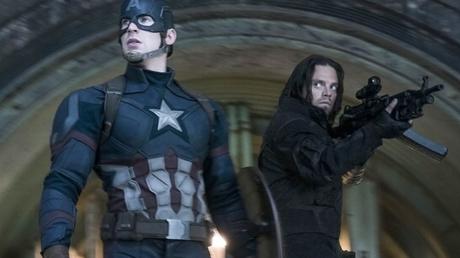
Even the film's villain, Zemo (Daniel Bruhl), operates from an emotionally understandable place: his family is dead, and he feels someone should pay for that. He's just willing to go quite a bit farther than most.
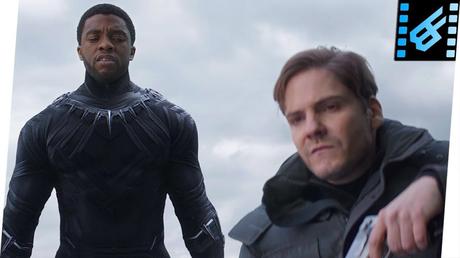
In order to keep the film from being bogged down in its own solemnity, the script brings Spiderman (Tom Holland) into the MCU and reintroduces Ant-Man (Paul Rudd) - two young, enthusiastic side characters who are just happy to be part of the action.
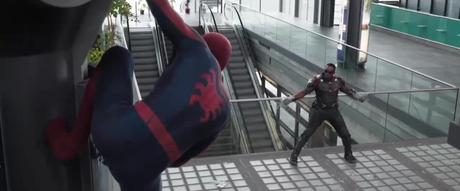
They're responsible for many of the film's best laughs and significantly contribute to the MCU's most entertaining fight to date. Throw in the effortlessly charismatic Chadwick Boseman as Black Panther, also on an emotionally-driven path, and you've got a cadre of characters that should make Civil War feel overstuffed but remarkably doesn't.
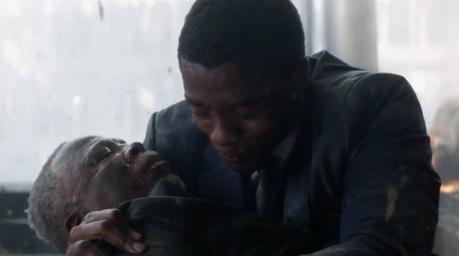
Credit that impressive accomplishment to longtime Captain America screenwriters Christopher Marcus and Stephen McFeely as well as directors Joe and Anthony Russo, who joined the franchise with The Winter Soldier. As good as that movie is, Civil War might be better. The script consistently keeps character interactions front and center, and the Russo's use of kinetic visuals prevents the film's lengthy run time from ever weighing on the audience. There's a good reason these are the same men who were later entrusted with the herculean task of making Avengers: Infinity War and Endgame: they intuitively understand the characters and the way Marvel films work.
Contrast that, sadly, with Batman v Superman: Dawn of Justice, a regrettable superhero film which arrived in theaters over a month before Civil War and has since been pretty much disowned by Warner Bros. With its murky, ugly color palette and unsympathetic, poorly developed characters, BvS almost serves as a worst-case scenario for how poorly Civil War could have gone. BvS's failings served to highlight everything Civil War had gotten right, from the effort it put into its characters to the clear enthusiasm for the material unfolding onscreen. It may have been the cinematic equivalent of a big-budget superhero television show, but it pulled it off and that's what matters.
I've probably come back to Civil War more than any other Marvel installment, and to my continued astonishment, it never drags no matter how times I watch it. The plot is compelling, the characters are well drawn (and well-played), and the action scenes land. Every time I put the film on, I think I'll just have it playing the background while I do something else. However, I always end up dropping whatever I'm doing and just watching it. As it turned out, it was the film that got my brother into Marvel as well, which is kind of an achievement in itself.
Next time, I take on the reality-bending world of Doctor Strange and decide if I really am ready to negotiate with Dormammu.
Oh you know, I'm just your typical wallflower, high school theatre nerd who minored in film studies, attained her M.A. in English Literature,works as a substitute teacher, and decided to go to nursing school, but really wants to be a writer who blogs about pop culture, and then have people who. . .wait for it. . .actually read/ look forward to what she writes. In my spare time (when it's there), I watch one of my many blu-rays or DVDs (about 800 now), reading my kindle (one of the greatest inventions ever), playing my ipod (another one of the greatest inventions ever), obsess over b=Broadway musicals and horror films, and play my guitar (badly). In other words, I have no life that doesn't revolve aroung pop culture or school. Sigh. View all posts by Julianne Ramsey

